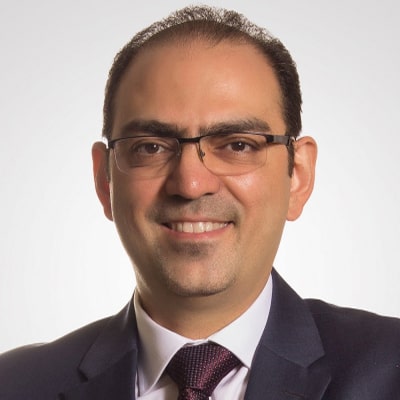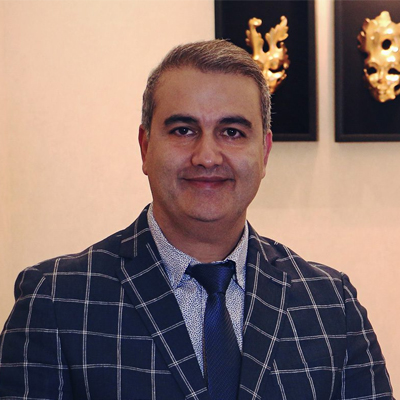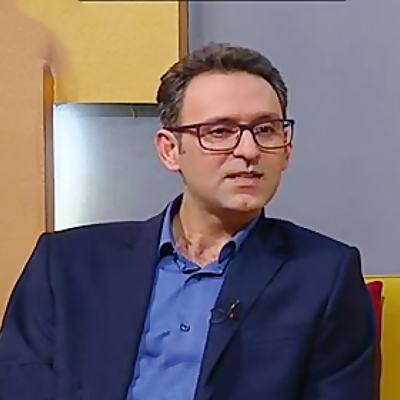Dental Implant in Iran
A dental implant is a remarkable dental innovation that serves as a replacement for a missing natural tooth and its root. It consists of a small, biocompatible post, typically made of materials like titanium. This post is surgically inserted into the jawbone to mimic the function of a natural tooth root.
We help you to double your beauty! Get in touch with our consultants…


Stay in Iran
7 days
Recovery time
12-14 days
Clinic Stay
1 day
Stay in Iran
7 days
Recovery time
12-14 days
Clinic Stay
1 day
- Packeges
- Videos
- B & A Photos
- Surgeon
- Hotels
- FAQs
What is Dental Implant?in Iran
A dental implant is a remarkable dental innovation that serves as a replacement for a missing natural tooth and its root. It consists of a small, biocompatible post, typically made of materials like titanium. This post is surgically inserted into the jawbone to mimic the function of a natural tooth root.
What makes dental implants truly extraordinary is their ability to fuse with the jawbone through a process called osseointegration. This fusion provides an incredibly strong and stable foundation for various dental prosthetic options, such as crowns, bridges, or dentures.
The process starts with the placement of the implant into the jawbone. Over time, usually a few months, the implant bonds with the bone, effectively becoming a part of the patient’s anatomy. This integration ensures that the dental implant can bear the same functional load as a natural tooth and offers numerous benefits, including improved chewing ability, speech, and overall oral health.
If you’re considering dental implant procedures and are interested in exploring options through medical tourism, “Mediranco” is a reputable medical tourism company that can assist you. We specialize in connecting patients from all over the world with experienced dental professionals and healthcare providers. Mediranco will guide you through every step of the process, from arranging appointments to handling travel logistics and accommodations. By choosing Mediranco, you can access top-quality dental implant treatments abroad, all while benefiting from cost-effective and convenient healthcare services.
How much do dental implants cost in Iran?
The cost of a dental implant can vary significantly due to several influencing factors. These factors include the brand of the implant, the materials used, the country of manufacture, the number of implants needed, and the specific location within the mouth where the implant is to be placed. It’s crucial to understand these factors before proceeding with dental implant surgery. Dental implants are typically crafted from materials like titanium, often with a ceramic coating. Titanium is an excellent choice because it bonds well with the jawbone and is biocompatible, making it safe for the human body. While titanium alloys are the standard implant materials, in some cases, patients may have metal allergies, leading the dentist to consider alternative materials. This choice can significantly impact the overall cost of dental implants.
Romanian girl choosing Iran for a perfect Dental Implant result
Today, a wide range of dental implant brands is available, each with its own pricing structure, some more affordable than others. It’s important to note that the reputation and recognition of a dental implant brand can greatly affect the success of the treatment.
The country of manufacture also plays a vital role in dental implant pricing. Countries like Switzerland, the United States, Korea, Germany, and Sweden are known for producing the most professional and high-quality implant brands.
In Iran, dental professionals use top-tier dental implants, and the components used in these implants are sourced from countries such as the United States, Germany, Switzerland, and Korea. On average, for each implant, patients can expect to pay approximately $600 to $700, reflecting the quality and reliability associated with these implants.
Others Video
Australian girl getting a Dental Implant in Iranthinks it’s way better than you think
Australian girl getting a Dental Implant in Iranthinks it’s way better than you think
Australian girl getting a nose job in Iranthinks it’s way better than you think
Australian girl getting a Dental Implant in Iranthinks it’s way better than you think
Dental Implant in Iran before and after
Before
after
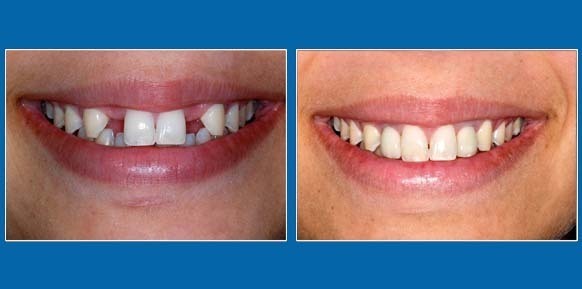
Before
after
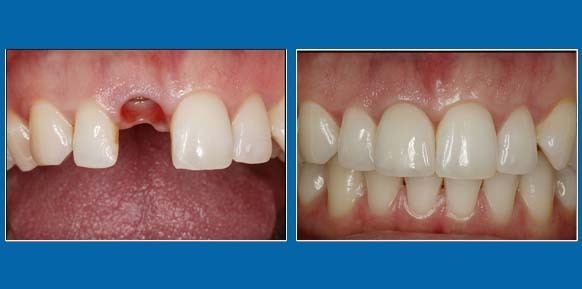
Before
after

Before
after

What Our Customer Say
Iesna
GB

Mediranco is an excellent agency they helped me arrange my whole trip to Iran and surgery with Dr. Hooman Ganjehkhosravi. From the moment I arrived in Tehran, I was greeted with warmth and hospitality that made…
Lydia
GB

I had a guide called sara who was absolutely amazing. She was so caring and kind and made sure I was comfortable and safe throughout my trip. I really recommend any one using mediran to book with sara!
Mansoor
DK

My name is Mansoor from Denmark .I highly recommend this mediranco. Mr Hossain was very kind and Good person. The Company mediranco is very fast to response. Thanks mediranco
Amal
AU

I had an amazing experience with Mediranco’s service. Traveling to Iran on November 1st, 2023, for Gastric sleeve surgery was truly incredible. From the airport pick-up to a farewell dinner on my last day, the journey was exceptional…
Now, let’s have a look at the photos of our patients in Iran!






Dr Shahriar Yahyavi
+2000
Successful Surgeries
12
Years of Experience
Successful Surgeries
+5
Dr Mitra Manavi
+2000
Successful Surgeries
12
Years of Experience
Successful Surgeries
+5
Dr kasra sabeti
+2000
Successful Surgeries
12
Years of Experience
Successful Surgeries
+5
Dr Farzad Nikouseresht
+2000
Successful Surgeries
12
Years of Experience
Successful Surgeries
+5
Dr Asadollah Mahdavi
+2000
Successful Surgeries
12
Years of Experience
Successful Surgeries
+5
Best dental implant Surgeon Iran
Why should you travel to Iran for a dental implant?
The best implant therapy services in Iranian clinics
In the best dental implant clinic in Iran, an effort has been made to provide the highest quality medical services to patients. Satisfaction of patients and clients with the services provided and facilities provided is the first priority of Mediranco Group. A good dental clinic is always trying to use the most reputable and high quality products in its medical services and to use the most equipped and up-to-date technology and equipment.
Following international standards, benefiting from the cooperation of the most professional personnel and treatment staff, using the best and highest quality raw materials, using the most up-to-date technology and equipment, observing all protocols and hygienic principles, and creating a safe and full environment From the comfort of the patient while receiving the services, all are the factors that make a clinic the best clinic in this field.

Dental Implant services in Iran are on the highest level in comparison with most western and Asian countries in terms of quality, price and international standards. Based on the low price and high quality of dental care, Iran can be a good destination for dental implants. We can make a comparison about the price of the implant, it is 600$in Iran, 1000$in India, 1100$in Turkey, 1200$ in Brazil, 2500$in united states, 1000€-1500€ in Germany so you can see, there is an enormous difference between the price of the implant in Iran and other countries. It should be mentioned that Dental Implant in Iran price with Mediranco consists of accommodation and treatment packages.
Hotels

Shiraz Hotel
Tehran, crossroad of chamran and valiasr, parsian esteghlal international hotel

Sarina Hotel
Tehran, crossroad of chamran and valiasr, parsian esteghlal international hotel

SarayeAmeriha Boutique Hotel
Tehran, crossroad of chamran and valiasr, parsian esteghlal international hotel

Parsian Safaiyeh Hotel
Tehran, crossroad of chamran and valiasr, parsian esteghlal international hotel

Parsian Esteghlal Hotel
Tehran, crossroad of chamran and valiasr, parsian esteghlal international hotel

Parsian Azadi Hotel
Tehran, crossroad of chamran and valiasr, parsian esteghlal international hotel
How to Recover From Dental Implant?
- Take time off work
Most patients take 7-10 days off work to recover from a Dental Implant procedure. You will likely feel some discomfort and swelling during this time, so it is important to take it easy and rest.

- Follow your surgeon’s instructions
Guidance from your plastic surgeon is key post Dental Implant. Adhere to their instructions meticulously for effective care. Your surgeon will provide details on cleaning the area, managing swelling and pain, and scheduling follow-up appointments. Keep your head elevated during the initial days to reduce swelling, and your surgeon might recommend a nose splint or cast for protection. Additionally, pay attention to your diet—following your surgeon’s advice on nutrition and fluid intake contributes to a smooth recovery. Trust the process and ensure the best outcomes by following your surgeon’s personalized care plan.

- Avoid strenuous activities:
You should avoid strenuous activities such as exercise, heavy lifting, and bending over for at least two weeks after the procedure. This will help to minimize swelling and prevent any damage to the delicate tissues in your nose.

- Take your medications as directed
If prescribed pain medication, take it as directed to alleviate any post-procedure discomfort. Also, to ensure the best results and prevent infections, diligently take the prescribed antibiotics. Timely and consistent medication intake is crucial, so stay on schedule and trust your surgeon’s advice for a smooth and successful recovery.

- Use cold compresses
Applying cold compresses to your nose can help to reduce swelling and discomfort. Be sure to follow your surgeon’s instructions on how often to use cold compresses and how long to apply them for.

- Attend follow-up appointments
Applying cold compresses to your nose can help to reduce swelling and discomfort. Be sure to follow your surgeon’s instructions on how often to use cold compresses and how long to apply them for.

- Avoid alcohol and smoking
Applying cold compresses to your nose can help to reduce swelling and discomfort. Be sure to follow your surgeon’s instructions on how often to use cold compresses and how long to apply them for.

Types of dental implants used in Iran?
Dental Implant in Iran have different types, which are:
Endosteal: In this procedure, which is usually common, the implant is placed in the jawbone and then the dental veneer is placed on it.
Subperiosteal: This type of implant is performed on the bone and under thee gums. Usually, the screws used in this type of method are made of aluminum (like the above method) and it is done in one step by sticking the implant in the jaw bone.
Transosteal: This type of implant procedure is performed between the gum tissue and the jaw bone and the implant piece is U-shaped.
There are other common methods for performing dental implant procedures:
- Immediate implants
- Mini dental implants
- Micro implants
- Zygomatic implants


Dental Implant Recovery: What to Expect
Dental implants have revolutionized modern dentistry, offering a permanent solution for replacing missing teeth. If you’ve recently undergone a dental implant procedure or are considering one, understanding the recovery process is crucial to ensure a successful outcome. Dental implant recovery is a gradual journey that requires patience, care, and adherence to your dentist’s recommendations.
Immediate Post-Procedure Care
In the hours immediately following your dental implant surgery, it’s normal to experience some discomfort and swelling. Your oral surgeon will provide you with specific instructions to manage these symptoms effectively. Here are some common post-procedure care steps:
1. Pain Management: You may be prescribed pain medication to alleviate discomfort. Follow your dentist’s dosage instructions carefully.
2. Swelling: Apply an ice pack to the outside of your face for 20 minutes at a time to reduce swelling during the first 24-48 hours after surgery.
3. Diet: Stick to a soft diet for a few days to minimize irritation around the surgical site. Avoid hot and spicy foods, as well as alcohol and tobacco products.
4. Oral Hygiene: Continue regular oral hygiene practices, but be gentle around the surgical area. You may receive a prescription mouthwash to help prevent infection.
5. Rest: Rest is essential for a smooth recovery. Avoid strenuous physical activity and get plenty of sleep in the days following surgery.
The Initial Healing Phase (0-2 Weeks)
During the initial healing phase, your body begins to form a bond between the implant and your jawbone, a process called osseointegration. Here’s what you can expect during this period:
1. Sensitivity: You may experience heightened sensitivity or discomfort around the implant site. This is normal as your body adjusts to the implant.
2. Swelling and Bruising: Swelling and bruising should gradually subside during this phase.
3. Dietary Restrictions: Continue to stick to a soft diet, avoiding hard, crunchy, or chewy foods.
4. Follow-Up Appointments: Attend all scheduled follow-up appointments with your dentist or oral surgeon to monitor your progress.
5. Oral Hygiene: Maintain meticulous oral hygiene. Your dentist may recommend using a soft-bristle toothbrush and a gentle touch around the implant area.
The Restorative Phase (2-6 Months)
The restorative phase involves the gradual strengthening of the implant-site bond and the preparation for attaching the prosthetic tooth (crown, bridge, or denture). Key points during this phase include:
1. Osseointegration: Continue to give your implant time to fully integrate with your jawbone. This process can take several months, and it’s crucial not to rush it.
2. Temporary Prosthesis: Depending on your case, your dentist may provide a temporary prosthesis during this phase to improve appearance and function.
3. Final Impressions: Your dentist will take final impressions of your mouth to create a custom prosthetic that matches your natural teeth.
4. Prosthetic Attachment: Once your implant is fully integrated, your dentist will attach the permanent prosthetic, restoring your smile and bite function.
Long-Term Maintenance
After your dental implant has been successfully restored, maintaining good oral hygiene practices is vital for its long-term success. Here’s how to care for your implant:
1. Regular Check-ups: Continue to see your dentist for regular check-ups and cleanings.
2. Oral Hygiene: Brush, floss, and rinse as recommended by your dentist. Specialized dental tools may be necessary to clean around the implant.
3. Avoid Tobacco: If you smoke, consider quitting, as tobacco use can compromise the longevity of your implant.
4. Mouthguards: If you grind your teeth at night, ask your dentist about a nightguard to protect your implant and surrounding teeth.
5. Healthy Lifestyle: Maintain a healthy diet and lifestyle to support overall oral and systemic health.
Step 1: Prepare for dental implants
The stages of dental implants may vary depending on the type of specialist and the type of implant procedure. Because dental implants require one or more surgeries, you should do a thorough evaluation to prepare and perform the dental implant procedure, so in the first step:
You need to take three-dimensional images of your teeth and their models and jaws. Also, the announcement of your special condition, including heart problems, should be announced to the doctor before the surgery.

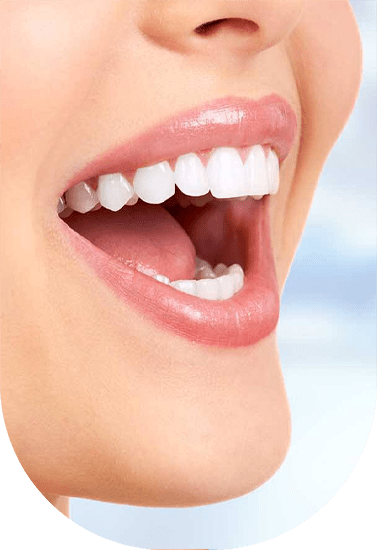
Step 2: Implantation of teeth
After preparation, we need to enter the stage of surgery and dental implants. At this stage, the surgeon makes an incision in the area to open the gums and view the bone. The cavities should be drilled to the bone, where the implant should be placed.
The next step is to wait for the bones to grow. During this process, the jawbone grows and unites with the surface of the dental implant. This process, which can take several months, will help build a solid foundation for your new denture and act as a root.
Step 3: Insert the prosthesis
The last step of the dental implant is the placement of the prosthesis and the head. When the implant is placed in the bone, depending on the individual, a time delay of 3 to 5 months must be observed, after which the prosthesis and crown head will be placed on the piece. At this stage, the oral surgeon must examine you. You may need limited visits to check the condition of the implant and gums for 3 to 5 months. After attaching the crown head, the gum tissue closes. Also pay attention at this stage so that after the prosthesis is placed, you should give the gums about 2 weeks to heal.
Is dental implant painful?
Many people who need implants are concerned about postoperative pain and think it will last a long time after surgery. It indeed feels normal to feel hand pain after implant surgery, but with the necessary care and following the doctor’s instructions, the pain will be reduced to a tolerable extent. Pain and discomfort will begin after the local anesthesia is gone. The feeling of pain after implant placement depends on how the surgery is performed and the number of implants implanted. With the use of painkillers and antibiotics prescribed after implant surgery, the patient does not feel any particular pain or discomfort. Slight swelling a few days after surgery is perfectly normal, and it is best to use soft foods to prevent severe side effects until the surgery is completely healed.
How long does a Dental Implant in Iran last?
The shelf life of implants is a key factor to consider when weighing them against other potential options. Many patients are surprised that dental implants can last for about 25 years with proper care. However, the actual lifespan of your implant will be directly affected by several factors. These include you: Oral Health Condition Diet and lifestyle The location of the implant in your mouth
What is the downside of dental implants?
Dental Implants, like any other treatment, can have side effects. It is not the case that all people experience complications after treatment and that r all the complications occur for one person. However, some people may experience the following complications: Possibility of damage to gingival tissue: Various cases can cause damage to the gum tissue and nerves, the most important of which is the lack of skill of the dentist. It is always recommended that you leave this treatment to an implant specialist and consult an orthodontist if necessary. If the treatment is performed by an inexperienced person, there is a possibility of damage to the gum tissue during treatment. Causing sinus injuries: The jawbone and sinus cavity are connected, and if the implant placement process is not done, inflammation will occur. Of course, if the implant specialist does this, such a complication will not occur. Causing allergies: Allergies to the titanium base of the implant are allergic reactions that can cause inflammation and swelling. Tooth infection: Infection is possible during and even after surgery. Smoking, autoimmune diseases and poor oral hygiene can be some of the causes of this infection. Failure of dental implant implantation: If the dentist does not have sufficient expertise and skill in treatment and has not evaluated his / her patient’s condition accurately and completely, the implant placement may fail and many problems in the short or long term, for Be patient. An experienced dentist knows that adequate bone density is one of the most important things to consider. If this is not taken into account and the implant is implanted where there is not enough bone density, after a while you will face bone resorption and non-fusion of the implant base with the jawbone. In this case, the treatment fails and it is necessary to perform another operation.
How long does a dental implant procedure take?
The dental implant process is a three-phase process that can be different for each individual. The whole process usually takes 5 to 8 months. It should be mentioned that the First step for a dental implant takes 4 sessions, counselling, examination, and doing work that takes at least two sessions.
Is a dental implant removable?
Implants are usually a safe and successful procedure. It should only be done by an experienced and professional specialist. The success of these implants is possible if they are placed correctly. However, poor implementation of the program by a non-professional implant specialist can lead to implant rejection. Implants that are rejected under these conditions can be recovered and removed. To avoid possible problems in the future. This means that after the dental implant is removed, the implant site will need treatment. Because the implant is fused to the bone, it may be difficult to remove it by mistake.
Do dental implants need special care?
After implant surgery, there is a need for some post-implant care, which we will explain. To heal and repair a surgical tooth, you should take some time for it: Rest After your dental surgery, rest for the rest of the day. If your dentist gives you sedation, you will probably still feel drowsy. Therefore, you should not do activities such as driving. You should also avoid strenuous activity. Do not lift or bend anything that can destroy a blood clot and cause bleeding. Lift your head while sleeping with extra pillows. Follow the instructions Your dentist may tell you to avoid brushing and rinsing your mouth at first because your mouth may be sensitive at this stage. They may tell you to avoid brushing sensitive gums, but brush your other teeth as usual. Ice You may have bruising or swelling of the face, wwhich is normal. Put ice on your jaw for 30 minutes, remove for 20 minutes and repeat (essential in the fifirst24 hours). If surgery is performed on both sides of your mouth, place ice on either side of your mouth and move it from side to side. Your swelling should go down after a few days. If you notice pus or fever, possibly an infection, tell your dentist right away. Protect against blood clots Do your best to prevent blood clots from healing your mouth sores. Therefore, do not use carbonated beverages, alcohol and beverages. Also, do not smoke for a few days after the operation and try to avoid spitting. It Be careful what you eat Soft and cool foods are good after the operation. Some solid foods include: Apple Yoghurt Oatmeal Warm soup Avoid very cold, hot, chewy, hard or spicy foods Use of analgesics You will probably need painkillers first to control the pain. In some cases, over-the-counter painkillers such as acetaminophen are good, but in other cases, your dentist may prescribe a stronger painkiller. Pay attention Be aware of fever, infection, or swelling that does not last more than two days. Also, pay attention to your breathing or swallowing for any problems. You may also have an allergic reaction to the anesthetic given to you by your dentist. In this case, contact your dentist immediately. Follow up Do not forget to make appointments for follow-up after your surgery, so that the dentist can ensure your proper recovery. It is always very important and necessary 48 hours after implant surgery. During this period, the signs and symptoms related to the implant show themselves more than ever. One hour after your mouth surgery, try to keep the gas pack on your teeth with some low pressure and do not allow it to move in your mouth. Make sure the dressing is in place for the first hour and do not replace it unless you have heavy and persistent bleeding in that area. If you have a bleeding problem and it does not stop, apply the new dressing gauze to the surgical and bleeding area for 30 minutes and then replace it. After that, you should change the dressing gas every 30 to 45 minutes.




